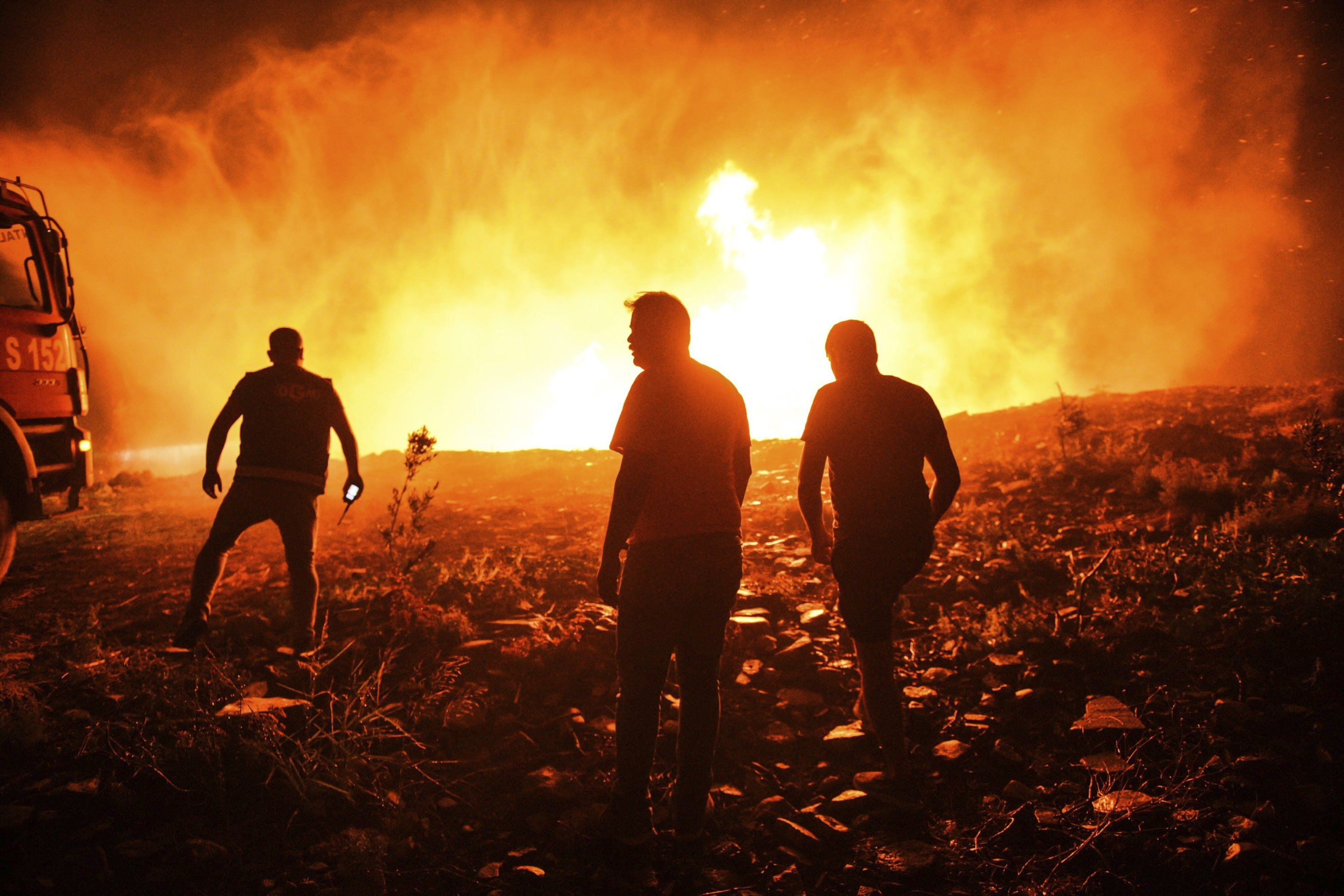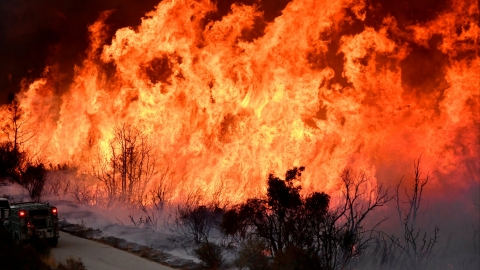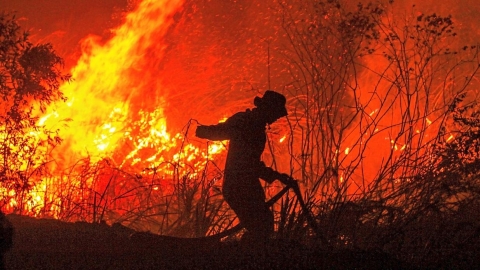In recent days, widespread wildfires have occurred in southeastern Europe. The disaster has triggered the most devastating heatwave in a decade.
Facing wildfires, Turkish authorities are under criticism for lacking the necessary infrastructure to deal with the disaster. The European Union has pledged to soon deploy helicopters to drop water to assist the country in extinguishing the fires along the Gulf region.
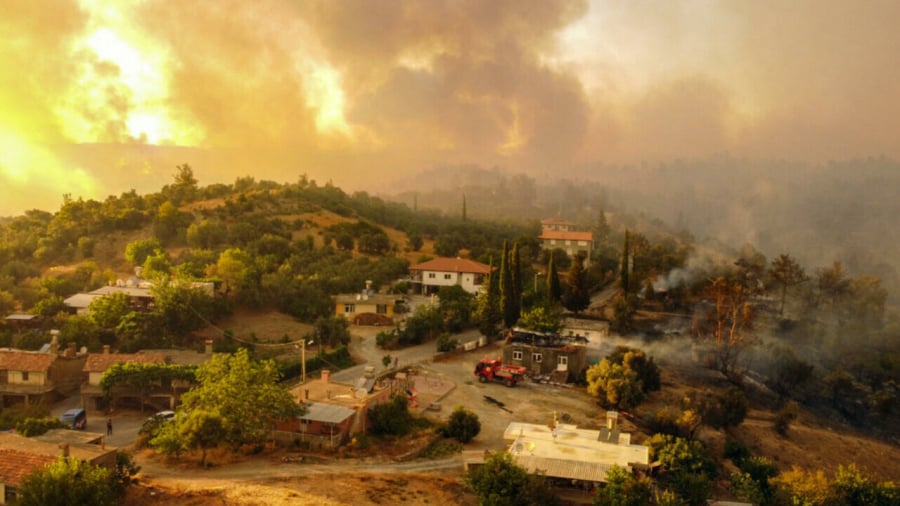
A fire broke out in the village of Manavgat (Türkiye).
The wildfires are not only raging in Türkiye but have also spread to Southern European countries including Greece, Spain, and Italy. Temperatures have soared to 40 degrees Celsius, forcing hundreds of people to evacuate their homes.
In Greece, temperatures have reached 45 degrees Celsius, and many places have allowed workers to take time off if they are not healthy enough to continue working.
Fires broke out near Patras (western Greece) on July 31, forcing the evacuation of five villages. Eight residents were hospitalized with severe burns and smoke inhalation.
The Republic of Cyprus – which just battled devastating bushfires last month – has deployed water-carrying aircraft for daily patrols to be ready to respond if fires break out.
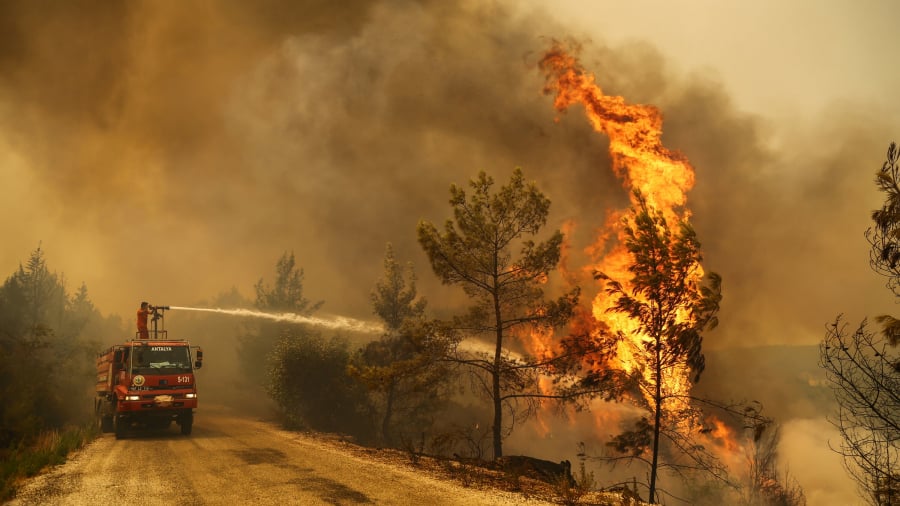
Speaking to AP, Dann Mitchell, a climate research professor at the University of Bristol, explained that the rising heat waves in southeastern Europe are not entirely unexpected, stemming primarily from human activities that cause climate change.

 VI
VI EN
EN




